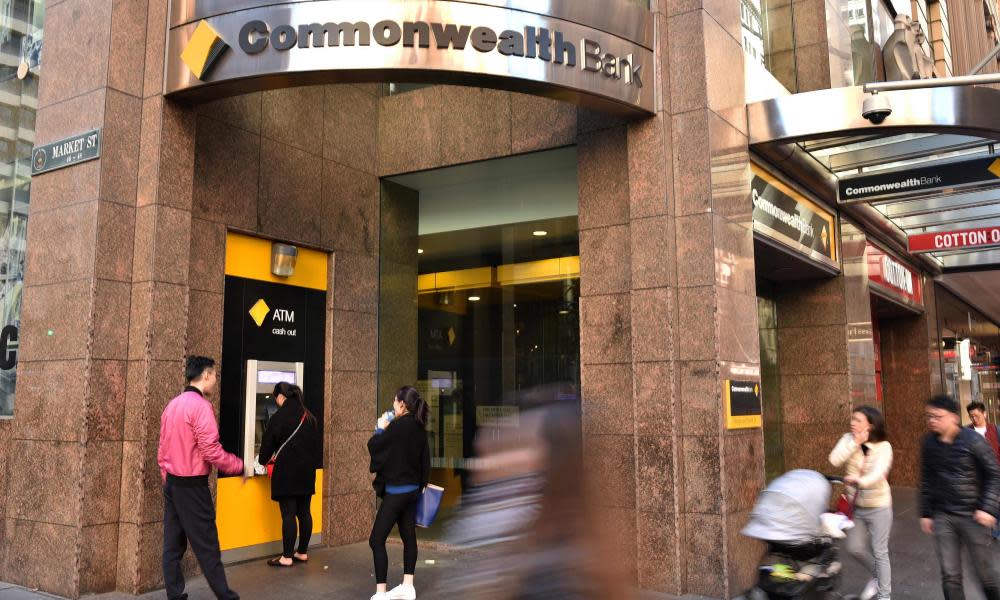'They can see I've a gambling problem': Banks' lending practices laid bare at royal commission

The anguish on David Harris’s face said it all.
The British-born roofer broke down this week when he appeared as a witness at the banking royal commission.
In between deep breaths, Harris told commissioner Kenneth Hayne how he had amassed a $35,000 credit card debt with the Commonwealth Bank, and how his attempts to get the bank to stop offering him credit limit increases proved futile.
In 2016, he had told a CBA staff member that he had a gambling addiction, and said he had pleaded with the bank to stop offering him more credit, but the offers had kept coming and his debt kept ballooning.
“I explained I’m a gambler, I have a gambling problem, they can clearly see that I’ve got a gambling problem because of the transactions I’ve been making, and I don’t understand why they keep offering me more money,” he said.
He then began to cry as he re-lived the experience.
It was a poignant moment for the royal commission. It came near the end of a fortnight of hearings in which Australia’s major banks admitted to appalling behaviour in recent years.
The commission heard evidence of National Australia Bank staff being involved in an alleged bribery ring involving multiple bank branches, forged documents, fake payslips and Medicare cards, with bribes being paid in cash stuffed in envelopes, as NAB staff responded to an incentive program to sign up new customers for home loans.
The Commonwealth Bank admitted mortgage holders were more likely to run into financial trouble when they secured their loans from a mortgage broker, and that the commissions it paid to its mortgage brokers often incentivised them to sell risky mortgages to customers, but it didn’t want to stop the practice until other banks stopped too.
ANZ admitted it did nothing to verify the general living expenses of customers who had been sent to the bank from a mortgage broker, complaining it would be too complex, time consuming, and costly to comb over every individual’s bank statements.
And Westpac Bank was criticised for being the “most resistant” to Australia’s banking laws, and the least willing to cooperate with the regulator’s attempts to enforce responsible lending practices.
The commission has heard how hundreds of thousands of Australians have been affected by the banks’ poor behaviour in the last few years alone, with hundreds of millions of dollars being paid back in remuneration.
NAB and ANZ were chastised for withholding important documents from the commission.
On Friday afternoon, when counsel assisting Rowen Orr began her summary of the past fortnight’s evidence, she said CBA had just handed the commission another batch of new documents which should have been handed in weeks ago.
“We have had limited time to review this additional material, however we observe that the material refers to, for example, at least 41 significant events of which seven involve responsible lending issues relating to home and personal loans, credit cards, and overdraft facilities,” Orr said.
“Remediation totalling $5.326m has been paid to customers in respect of these events, but remediation for at least two of the events is yet to be quantified.”
Analysts from UBS published a research note on Friday, warning that given there had been only two weeks of hearings, the prospect for Australia’s banks was not good.
“The banking royal commission has presented evidence of: fraud, bribery, failure to verify customer income, not assessing expenses, false documentation, failure of internal controls, failure to report misconduct to Asic, and systemic problems,” the UBS note read.
“So far the royal commission has been presented with substantial evidence based on a number of case studies into banking misconduct.”
The UBS analysts said as a consequence of the royal commission, Australia’s banks might have to tighten further their lending practices, and that this might lead to general “credit tightening” or a “credit crunch” in the economy, depending on how things played out.
Orr closed the fortnight with this assessment:
“Commissioner, over the last two weeks, the commission has received evidence of misconduct and conduct falling below community standards and expectations by a number of financial services entities.
“The misconduct and conduct ... has occurred in respect of the consumer credit products that we identified in our opening address: home loans, car loans, credit cards and overdraft facilities.
“It has also occurred in the selling of insurance with credit products and through a variety of account administration and processing errors made by financial services entities in connection with credit products, such as home loans.”
She then called on the commission to find misconduct charges and breaches of national credit and corporation law against the NAB, Commonwealth Bank, ANZ, and Aussie Home Loans.
Hayne said round two of the hearings will begin on 16 April.
with AAP

 Yahoo News
Yahoo News 
